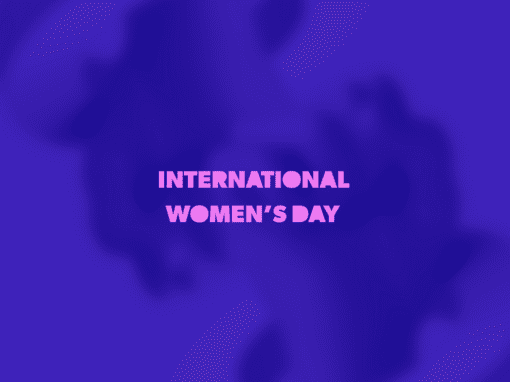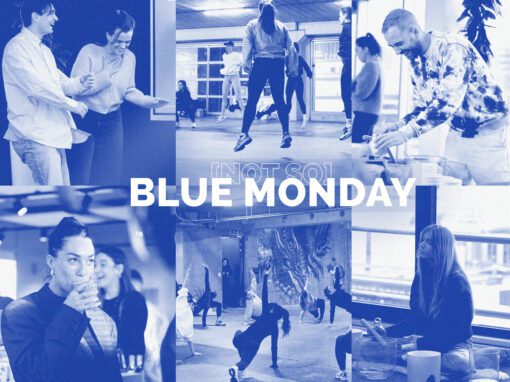This blog is the first of what we hope will be a series of content pieces that all have one thing in common: they all discuss things that are difficult to talk about at work. In a very Boomerang way: raw and unedited. A big big shout-out is in place to our dear colleague Matthijs van Asselt who was brave enough to go first. Cheers to you man.
The burn-out (or whatever).
By Matthijs van Asselt
reading time: 9 minutes
In our professional area, by people in our little world also described as Our Little World, it doesn’t feel like there is space to just stand still for a moment. We keep on running and running, we find working late normal and we are jokingly baffled by those who don’t. If you leave on time you get things thrown at you such as ‘Happy holidays!’, ‘Are you getting lunch?’ or ‘Going home for a number 2?’
I can hear you think – jokes are fine, they should be taken lightly, they’re harmless. But I can also hear others think: those kinds of jokes hurt me and worsen how rubbish I feel and push me towards an edge. And to be completely honest, the latter category can probably already hear themselves think all the time, so think about that.
So right, the generally accepted idea is that you have to be busy in this business otherwise you’re doing something wrong. Or, as I wrote down in my notes: the advertising world is a bit like, yeah working late is cool I love it deadlines deadlines yeah yeah.
Well, then it’s pretty damn hard to admit you are stressed out and tired as fuck, because the rest also just goes on and on. You think extreme stress is normal, it’s part of the job. It will pass. But when it doesn’t, it gets even harder to admit you are stressed the fuck out, let alone to let someone else know.
Some people think that you only get burnt out from working too hard, too long and too much. This way of thinking invites you to automatically compare yourself to others. On the one hand there are people – who do not know much about mental health issues – that tend to think about strugglers only in comparison to themselves: I am working just as hard and long as them – maybe harder, longer. My job is much more demanding as well. I keep on going too, right? Don’t be such a baby. This piece might be good for them to read, because I also never thought this would happen to me. This wasn’t for me at all, but here we are.
But there are also people who experience mental health issues who compare themselves to the ones working harder and longer than them. Me, for instance. I read a piece on a woman once who was burnt out and she worked extremely long hours and still trained for a triathlon in her spare time and I thought to myself: In no way have I worked as hard as this woman, my hours and effort are nothing compared to hers. I am a fraud, a failure and a crybaby, but can someone please come and stir my tea because I am tired as FUCK? What is wrong with me? Why are there people working 80 hours on highly intensive jobs and still manage to survive seemingly without blinking and I cannot even do half of that? Why can’t I stop crying?
But this is also why I know that it’s not about the number of hours at work. It’s about the capacity of and the connections inside of your brain and the workload you give it. When it is structurally overloaded, it eventually breaks down. It’s as simple as that. For me it had to do with a lack of serotonin or simply put: a lack of happiness in the brain.
When I felt bad, I looked for salvation in today’s Never Ending Story: social media. Fast content followed by even faster content relieving my brain for a brief moment, distracting me from my own negative thoughts. Social media temporarily rewired my brain. If I kept it like this, I was okay. It felt like hotwiring a car and the engine only worked when two wires touched each other, and then over and over again. I only realised I was just exhausting the entire vehicle when I put down my phone for a moment. It’s a deteriorating distraction.
I don’t want to say that this is how social media work, as it’s different for everyone, but for me they are fleeting moments of happiness and very short moments of stimulus that are highly addictive, especially when that stimulus or happiness doesn’t come from anything else. I think I am addicted to social media, but it’s also a very large part of my job so going cold turkey isn’t an option. Should I quit?
When I feel good, I tend to think I am completely back on track. This is me! Feeling good is the norm, this is how it’s supposed to be. I know in theory that this is not true but letting go of the image is quite hard. And often when my mind feels like a clear blue sky and I feel good, I tend to think: where are the dark clouds at? I know they’re coming anyway.
Okay, so work. In my opinion mental health issues are almost never caused by work, but work can certainly contribute to them and the work environment as well. For me, it’s hard working in an office that is open and an ‘office garden’ – which is probably a very Dutch thing to say – when I’m, let’s keep it simple, feeling down.
When you express the fact that you’re feeling overwhelmed by the cacophony that all calling, yelling or singing colleagues contribute to, you get to hear that no one think it’s a relaxing environment and that it’s just part of it. Just a cozy, dynamic office space, right? Freedom for creativity! But this only plays down your problem. But those who say it’s not different for you than for others do not know that some brains are not always capable of filtering and that every single sound comes in at one pace, in one volume. Like mine.
This is not just a loud sociable dynamic place; it can be an extreme overkill for the senses.
Next. It’s good to know that people who have burn-out symptoms literally go into survival mode. When you gain no natural energy and you keep doing the things that caused a drained feeling, the body and brain are tricked into thinking your life is in danger. That is also when unexpected and unnecessary anxiety or panic attacks can occur, because your mind is misled and thinks you need to survive. When your brain is in overdrive, other organs are neglected. You can lose or gain weight, develop skin problems or experience issues with your bowels, for instance. Also, stress goes to your muscles, which is a more known problem.
I know – I’m beginning to sound like a life coach, but this is what I’ve learned. I don’t want to come across as someone who has all the answers, I’m just sharing my own experience. Still I want to explain something about stress.
Stress is connected to your fear system. A little bit of fear or stress is necessary to ignite action. Without fear or stress, you would be dead right now. Without stress, you wouldn’t be able to do anything. So yeah, don’t think too negative about stress. The trick is simply to not have too much of it. But some people have a higher base level of stress or fear, regardless of their efforts at work or anywhere else. If you see the level of stress as a bar that hits tilt at 100, it’s good to know that not everyone starts at 0.
In addition to this, I think that one of the most important things I’ve learned is that no burn-out or mental health issue is the same. I’ve read hundreds of articles (okay no not that much, maybe eight or nine) where I recognized some of the issues, but never everything. I never have all the symptoms and sometimes I have some they do not describe. I actually never believe the stories of people who say they’re burnt out because they went to the supermarket for milk and eggs and came back with a bag of lemons because I didn’t experience anything like this myself.
And that is why I do really get why people fail to understand mental health issues and are skeptical about them. It couldn’t be that bad, right? Well it can. But you have to learn more about it to understand it. Not everyone is willing to educate themselves, because it doesn’t concern them. I am lucky to have an employer that cares and doesn’t underestimate the importance of mental health. But the difficulty here is that you always have to ask for help yourself. People can only understand if you talk to them. I know I waited way too long to say something about how I was struggling, and then it was too l– No. It’s never too late, actually. You must speak up if you’re feeling unwell. There’s more understanding than you think now.
Finally, just to get a view of what’s happening in my head at totally random moments, here are some thoughts I had while writing this piece:
I am a whiner. I am weak. I am not a real man. Not a worthy human being. Why am I so stupid? Why can’t I do anything? This piece sucks. Go do something useful. What is Slater from Saved By The Bell up to now? I want to get rid of my social media. Throw my phone in the water, walk away and never look back. Facebook is eating my brain. Why am I never horny anymore? Am I into men? Is that it, am I just a closeted gay man? Drinking coffee scares me and thinking of drinking coffee scares me. All I need is some green tea and a high mountain. Not to jump off of it. Or? Should I jump off a cliff? No, I need monks. A monastery. What if I don’t need that? What do I need? I am having a heart attack. Oh wait, no. I am not. No wait I am in fact dying. No, I’m not. Apparently, I’m shit at dying. Am I unhappy? Depressed? Do I love things? Should I leave my girlfriend? Should I move? Leave town? Start a farm in Slovenia? Leave everything behind. Start over. A hard reset frees me from all the poison. But what if it doesn’t?
—————————————————-
Some more reading on this topic:
The Beautiful Brains Mental Health Manual offers comprehensive and accesible information and tips for a healthy workplace.

![BRBR_LogoCropped_Black[1]OMG-ai](https://boomerangagency.com/wp-content/uploads/2023/01/BRBR_LogoCropped_Black1OMG-ai.png)
![BRBR_LogoCropped_Black[1]OMG-ai (3)](https://boomerangagency.com/wp-content/uploads/2023/01/BRBR_LogoCropped_Black1OMG-ai-3.png)


